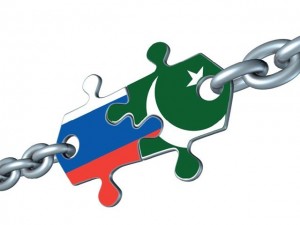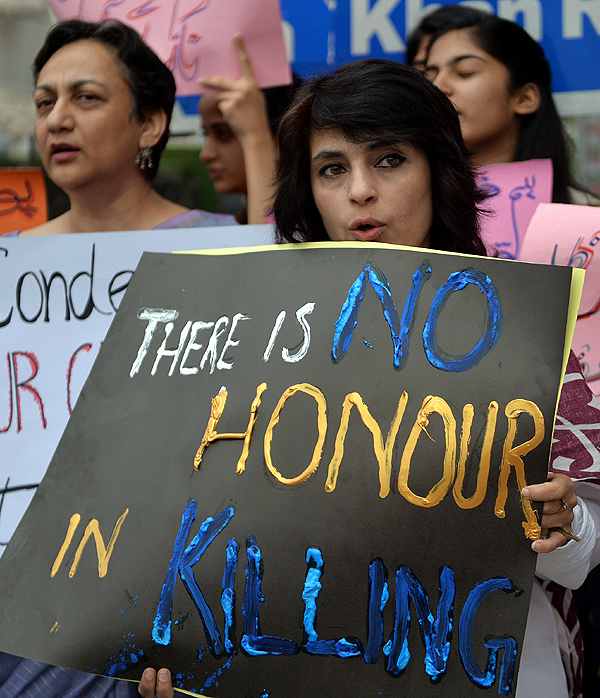Track Two Diplomacy: A Key to Rid Pak-Russia Relationship of Darkening Shadows of the Past
Friday, May 17th, 2013 4:22:45 by Mehreen Baloch
This is a fact only a few would deny that the world we are thriving in is swiftly transforming itself into a multi-polar entity where it has become almost impossible for any nation or country of the world to survive let alone progress while remaining cloistered in bitter and often prejudiced or at least erroneous notions of the bygone times. Where it is, at times, quite an uphill task to replace deep-rooted, decades-old or probably even older narratives with new and rather progressive ones, it certainly lies within the domain of possibility especially if the parties involved have an earnest desire to move forward, and are ready to reconstruct their relationship on the grounds of their mutual betterment.
In spite of the fact that the political leadership of both Russia and Pakistan seems determined enough to add new life to their mutual relationship and widen up their circle of cooperation and interdependence, the over-all situation, realistically-speaking, remains in the doldrums. This entails a dire need of revamping and accelerating track two diplomacy between the two countries so as to probe into the grey areas that are the potent cause of friction between the two, and hence need to be deliberated upon by both the sides if they are to refurbish their relations making them “productive” in truest sense of the word.
“Track II diplomacy”, simply put, means an informal or unofficial diplomacy whose predominant aim is to supplement “track one diplomacy” (official, state-sponsored diplomacy) by playing its part in rendering the prevalent scheme of things more conducive to the success of formal talks between countries. Track two diplomacy, in words of Louise Diamond and John McDonald, refers to: “non-governmental, informal and unofficial contacts and activities between private citizens or groups of individuals, sometimes called ‘non-state actors’ (Multi-Track Diplomacy: A Systems Guide and Analysis ).The evolution of track two mechanism, and recognition of its value as an alternate means of inter-state, bilateral or multilateral, communication took place alongside the proliferation of liberal, democratic norms across the whole world, even in those regimes who were not democracies themselves — a transition which imparted power and significance to non-state actors as well. Although their utility as an effective “disinfectant”, at least in the theoretical paradigm, especially in the domain of conflict-resolution seems to be a bit over-emphasized, significance of track two measures in bringing about a positive change in the mindset of power brokers of the countries involved in track two dialogues cannot be denied.
As far as the modus operandi of track two dialogues is concerned, there is no distinctly defined procedure. Activities, that range from one-step action to long-term endeavors, which can safely be enumerated among the ways in which track two diplomacy takes place are: workshops conducted by regional research centers or some non-governmental organizations, cultural activities which serve to highlight a softer image of the other countries, joint re-examination of historical events, informal meetings of the political and military intelligentsia of the countries concerned, etcetera. However, Dalia Dassa Kaye’s model of track two diplomacy, that appears in her illuminating research work Talking to the Enemy: Track Two Diplomacy in the Middle East and South Asia, defines it to be “an unofficial policy dialogue, focused on problem solving, in which the participants have some form of access to official policymaking circles” that evolves through three conceptual stages: Socialization, filtering and policy adjustment. This article would apply, for the sake of clarity, the afore-mentioned Kaye’s model of track two diplomacy, to the particular case of Pakistan-Russia relations.
Since it is not at all easy for nations, especially in case of staunchly ideological states like that of Russia and Pakistan, to break ties with both their conscious and unconscious historical past, track two diplomacy is meant to be a long-term investment that begins its task by a meticulous identification of the conflicting narratives, and sincere acceptance, by both the countries, of the potentially divisive stark realities their known history is strewn with whose shadows still haunt their present relationship although the leadership of both the countries seems to have moved forward leaving behind all controversial remnants of their past relationship. Any track two activity, for the sake of improvement of working relationship of the two countries, should begin with an earnestly neutral scrutiny of the earlier as well as the present ground realities that did define, and, in most of the aspects, still define the contours of their foreign policy towards each other.
Pakistan-Russia relations albeit apparently normal since the independence of Pakistan have never been truly cordial as such because of the former’s alignment with the US, as against the Soviet Union (USSR) in the then-existing bipolar structure of international power, right from its maiden years as a newly-emerged state, and ever since it is considered an American proxy in the region. Hence, traditionally, Pakistan used to view Soviet Union from the lens of the US. There did prevail, in Pakistan, a sense of apprehension as well regarding Soviet Union’s expansionist tendency so much so that Pakistan felt its very existence under an imminent threat, more so because of its defiant and aggressive eastern neighbor (India) which, at that time, seemed ready to take benefit out the power disparity existing between the two. Another factor that divested Pakistan-Russia relations of warmth from the very inception of their relationship was the factor that Pakistan had won independence mainly in the name of Islam and with the avowed objective of making the country an Islamic welfare state and there certainly was a general ideological antagonism of Muslims toward the very phenomena of Communism often considered to be, conceptually, an antithesis to what Islam stands for.
Moreover, in order to rid Pakistan-Russia interrelationship of all sorts of negative hues of suspicion and mistrust, a thorough understanding of the inevitable strategic compulsions that, in fact, shaped the course of foreign policy of the newly-born state of Pakistan in its initial years is quintessential for success of the “socialization” phase of track two diplomacy between Russia and Pakistan. That done, much of the vagueness and suspicion enveloping the early years of Pakistan’s foreign policy will evaporate in an instant, and at least the individuals, that might include defense analysts, lawyers, political activists, vanguards of civil society, intellectuals and even representatives of influential citizen groups, participating in the workshops and other track two activities would get newer dimensions to recalculate the potential of their relationship and would at least be less sceptical than before of each other’s policies. This, in most of the cases, will increase the likelihood of progression of the track two dialogues between the two countries to the stage of filtering which, in Kaye’s own words, “involves widening the constituency favoring regional cooperation beyond a select number of policy elites involved in track two, through the media, parliament, NGOs, education systems, and citizen interest groups.”
The effective execution of the “filtering” stage of track two diplomacy is often conditioned by the general public perception of the legitimacy of the track two activities. In autocratic regimes that do not hold legitimacy themselves as far as public opinion is concerned, such endeavors are more likely to be misconstrued there. However, in particular case of Russia and Pakistan, the respective political leadership has full support of most of the progressive-minded, moderate people of their country who are also well-versed with the changing dynamics of the post-modern world whose subsistence and progress is largely dependent upon the extent of inter-state cooperation and conciliation. Therefore, in particular context of Russia and Pakistan, all the various activities of track two diplomacy are likely to bear the fruit of bringing about a substantial change in mindset of the ruling elite, facilitating them in the process of identification their previous errors of judgment and waking them to the urgent need of re-orienting their relationship so as to diversify, multiply, and to make the most of the available options of mutual cooperation and interdependence.
Short URL: https://www.newspakistan.pk/?p=40279

















